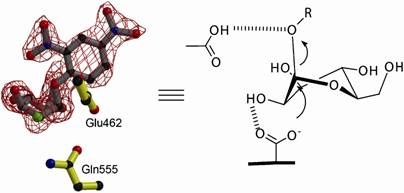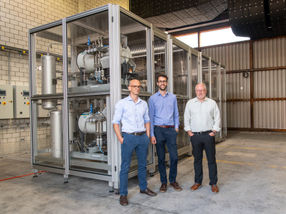Could nanotechnology revolutionize natural gas industry?
nanotechnology could revolutionize the natural gas industry across the whole lifecycle from extraction to pollution reduction or be an enormous missed opportunity, claim two industry experts writing in Inderscience's International Journal of Nanotechnology. They suggest that nanotechnology could help us extract more fuel and feedstock hydrocarbons from dwindling resources. However, industry inertia and a lack of awareness of the benefits could mean a missed opportunity.
According to Saeid Mokhatab and Brian Towler of the Chemical and Petroleum Engineering Department, at the University of Wyoming, in Laramie, there are many opportunities for the industry to exploit nanotechnology. However, there is a traditional lack of innovation in the exploration and production sector, a perception of high costs, new risks, and a general lack of awareness of the benefits of nanotechnology.
The researchers have now described the potential benefits of nanotechnology, which could change that perception. Mokhatab and Towler point out that nanomaterials, such as nanotubes or engineered porous minerals, might be used in the gas field or other source to improve the efficiency of extraction of a wide variety of hydrocarbon fuel compounds and chemical feedstocks.
Similarly, related nanomaterials might be used to improve purification and storage of hydrocarbons, while yet other nanomaterials might be used in environmental remediation, allowing contaminated sites to be cleaned up of harmful pollutants. Nanomaterials might even be developed as corrosion inhibitors for equipment and at the same time, more sophisticated nanotechnology could be developed as solid-state gas sensors for air pollution monitoring.
"The past decade has seen explosive growth worldwide in the synthesis and study of a wide range of nanostructured materials, the building blocks of nanotechnology," the researchers explain, "Investigations of mechanical, chemical, electrical, magnetic, and optical behavior of nanostructured materials have demonstrated the possibilities to engineer the properties of these new materials for a wide range of applications."
The researchers add that as readily accessible hydrocarbon reserves become depleted, the oil and gas exploration and production industry faces increasing technical challenges. These challenges boil down to increased costs and limitations on drilling and production technologies.
Most read news
Topics
Organizations
Other news from the department science

Get the chemical industry in your inbox
By submitting this form you agree that LUMITOS AG will send you the newsletter(s) selected above by email. Your data will not be passed on to third parties. Your data will be stored and processed in accordance with our data protection regulations. LUMITOS may contact you by email for the purpose of advertising or market and opinion surveys. You can revoke your consent at any time without giving reasons to LUMITOS AG, Ernst-Augustin-Str. 2, 12489 Berlin, Germany or by e-mail at revoke@lumitos.com with effect for the future. In addition, each email contains a link to unsubscribe from the corresponding newsletter.
Most read news
More news from our other portals
See the theme worlds for related content
Topic world Sensor technology
Sensor technology has revolutionized the chemical industry by providing accurate, timely and reliable data across a wide range of processes. From monitoring critical parameters in production lines to early detection of potential malfunctions or hazards, sensors are the silent sentinels that ensure quality, efficiency and safety.

Topic world Sensor technology
Sensor technology has revolutionized the chemical industry by providing accurate, timely and reliable data across a wide range of processes. From monitoring critical parameters in production lines to early detection of potential malfunctions or hazards, sensors are the silent sentinels that ensure quality, efficiency and safety.
Topic world Synthesis
Chemical synthesis is at the heart of modern chemistry and enables the targeted production of molecules with specific properties. By combining starting materials in defined reaction conditions, chemists can create a wide range of compounds, from simple molecules to complex active ingredients.

Topic world Synthesis
Chemical synthesis is at the heart of modern chemistry and enables the targeted production of molecules with specific properties. By combining starting materials in defined reaction conditions, chemists can create a wide range of compounds, from simple molecules to complex active ingredients.



























































